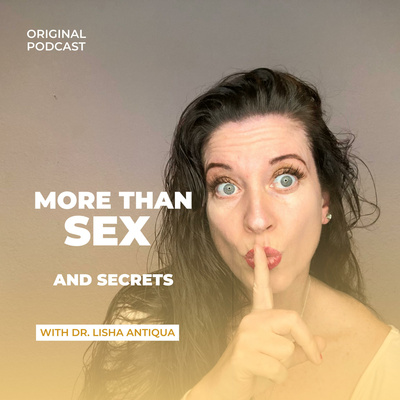“Grieving doesn’t make you imperfect. It makes you human.”
― Sarah Dessen
According to the latest edition of the DSM-5-TR (Diagnostic and Statistical Manual, the “psychiatric bible” of diagnoses), if you grieve the death of your child for 366 days, you have a disorder. The new diagnosis of “prolonged grief disorder” is the latest attack in the ever growing war on normalcy that was declared by psychiatry beginning in the 1950’s. Since the first edition of the DSM, the list of psychiatric disorders has exploded and now includes things such as binge eating disorder and disruptive mood dysregulation disorder.
The narrative being pushed by conventional psychiatry and the DSM is that psychiatric disorders are distinct diseases which require treatment. Commonly, psychiatric medications are a part of the recommended treatment for these disorders. This creates quite a warm and cozy relationship between psychiatry, the DSM and the pharmaceutical industry. The more diagnoses that exist, the more we need psychiatry and the more medications we need to treat all of these disorders. The financial incentive is for psychiatry, the DSM and the pharmaceutical industry to keep on “biggering and biggering” (to borrow from Dr. Seuss). And that is exactly what has been happening. Psychiatric drugs are a huge cash cow for big pharma and globally, sales of psychiatric drugs are expected to hit $40 billion by 2025.
The expansion of the DSM and psychiatric diagnoses means that more and more people are being diagnosed with mental illnesses. From the latest data, at least 50% of all Americans will be diagnosed with at least one mental illness during their life, and many people are diagnosed with more than one psychiatric disorder. Conventional psychiatrists believe this is great, because they assert that it means we are doing a better job of identifying and treating people with mental illness. We certainly are doing a great job of keeping people medicated. The prescribing of psychiatric medications is at an all time high. In the US, 1 in 4 adults and 1 in 12 children takes a psychiatric medication.

So, the glaring question is this: if psychiatric disorders are real entities, medications are the appropriate treatment and more and more people are being medicated, then why aren’t people getting better? I believe the answer is literally staring us in the face. Psychiatry has declared war on the very thing that makes us human. Human beings are amazingly complex creatures. We have the capacity to experience profound bliss, anger, happiness, despair, joy, grief, sadness, anxiety and love. It is this infinite capacity to experience a huge range of emotions that makes us human. If psychiatry tells us that it’s not okay or normal to have certain emotions such as depression and grief, then how are we to retain our humanity?
It is my belief (and I’m not alone on this one) that emotions are not something to be eradicated. In my experience as a human being and a holistic psychiatrist, I have seen how important emotions can be. Emotions are precious opportunities and windows into understanding our deepest selves. An experience of sadness or anxiety can be an invitation to explore how we are living our life. Feeling irritable or angry might mean that something in our life needs examining. Our emotions are not something to run away from, but rather something to embrace with loving curiosity.
Psychiatry has sold us the narrative that there are limits on the human experience. If we grieve for longer than a year or cry for more than 5 days a week or feel anxious for more than 6 weeks, we are not “normal.” Psychiatry has also decided that we cannot be trusted to know ourselves. They tell us we can’t trust our emotions or our own sense of what is normal. We must put our trust in psychiatry and in the doctors who use the DSM to diagnose us. In accepting this narrative, our society is sending the message that our emotions are inherently bad and that they shouldn’t be trusted.
If emotions are in fact what makes us human, then what does it mean to live in a society that tells us that emotions are bad or only okay in prescribed amounts? What does it do to us to buy into the story that we need to medicate our emotions away? What does it do to us as humans when we medicate normal?
I believe that another important aspect of being human is our connectedness. In order to thrive, we need to feel connected to ourselves and to other people. When we believe that our emotions are abnormal and that we shouldn’t trust our own innate ability to know what’s normal, it disconnects us from ourselves. When we believe that we have a disorder because our emotions are somehow different from other “normal” people, it disconnects us from each other. Psychiatry is selling us a myth of normalcy that is literally disconnecting us from the very thing we need to lead a meaningful life. And they are selling the cure to this disconnection in a pill. The cruel irony? The psychiatric drugs actually further sever our connection to our emotions, our intuition, our selves and each other. Psychiatry effectively causes disconnection and then offers a pill to treat this disconnection which only further worsens the problem. It’s sadly a brilliant business model.
I my humble opinion, I think we need more emotions, not less. I think we should all be allowed and encouraged to cry every day. We should be praised for randomly jumping out of our seats in ecstatic joy. We should be allowed to not pay attention to things not worthy of our attention. We should encourage and embrace random outpours of emotion. We should wear our emotions proudly on our sleeves. We should celebrate and embrace, not demonize and pathologize what it means to be human.
My mother died about 6 months ago. Contrary to what the DSM says is normal, I will grieve her loss for the rest of my life. My grief is ugly and big and messy and doesn’t fit neatly into a checklist. When I think about my mother, I cry almost every day. Sometimes I weep in a pile in the corner of my bathroom. Many times I ugly cry so loudly that my dog joins in. Sometimes I cry so hard that I can’t breathe. Frequently I cry in front of my children. The thing is, I don’t think that any of this makes me imperfect or worthy of a diagnosis. I think it just makes me human.







Leave A Comment